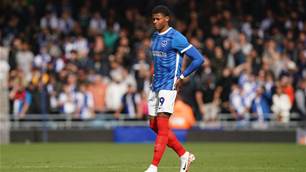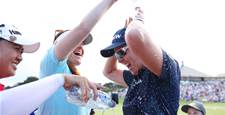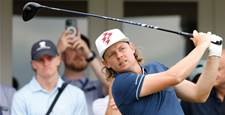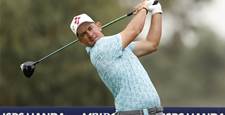When FC Copenhagen take on Manchester City at the Etihad tomorrow morning (AEST) they might end up being out-skilled - but physically they’ll more than a match Pep Guardiola’s men.
In terms of the metrics of endurance, distance covered, sprints - and any other measure of physical prowess you to choose to mention - the Danes are prime specimens.
And the man responsible for turning coach Jacob Neestrup’s team into Danish football’s fittest and most resilient outfit is none other than Andrew Clark - the sports science guru the Super Liga champions poached from the inner sanctum of the Socceroos.
Now in his second season in Scandinavia, Clark’s rigorous protocols as head of high performance have fashioned and moulded the capital club into a side which simply cannot be out-fought or run ragged, no matter who they face.
Even in the first leg of their Champions League quarter final on home soil against City - their first serious game after the winter break - the team which put paid to Manchester United in the group stage gave a decent account of themselves in going down 3-1.
“It was a huge challenge for us - really a step too far off the back of no competitive games,” Clark told FTBL. “But they’re the best team in the world, so what do you expect?
“Pep didn’t take us lightly - at times it was like the dog chasing the ball around the backyard. We just couldn’t get it,” added the ex-Central Coast Mariners defender.
“What we do really well normally, we didn’t do as well as we should have because we were a bit rusty. And what they do is exceptional.
“What they do is put so many players high because they’re so comfortable in possession. It’s a big ask when you come up against these sorts of teams.
“But we’ve done well - took a point off Bayern Munich, and beat Galatasaray and Manchester United. And we’ll be well prepared for the second leg.
“In terms of how we go about things against the big clubs we can’t miss a thing, we have to be perfect in the way we train, the way we travel and the way we eat. All those things can’t miss because if we do the gap is too big for us to compete.
“That’s what’ I take responsibility here for. It’s a daily challenge and with it comes a certain amount of pressure.
“I know what I’m good at and what I can bring to a team but you’re always trying to develop your craft. I was brought here for a reason - I think bringing that into a different culture, with the language challenges, it takes time to adjust.”
Clark individualises interactions with each player, seeking to maximise their output and cohesiveness within the team structure.
“Our European experience this year has taught us we need to make up ground ground in certain areas and play a type of game that bridges the gap our opponents might have in terms of talent at their disposal,” he explained.
“That might involve pressuring teams in high areas or sitting deep and catching teams in transition - the way we want to play is ridiculously physically intense.
“If you look at the stats across the Champions League group phase we had two, three or even four players in the top 10 in terms of metrics.
“That’s how we’re able to compete - there’s no other way round it for us. The physical capacity required to play the way we want is hugely demanding.
"That will be the case again on Wednesday night - it's a fantastic challenge for us against the best of the best."
Related Articles

'I can flourish in Championship': Yengi's battle cry for promoted Pompey

Mariners exodus: Balard's Portuguese deal, Nisbet to Melbourne City













